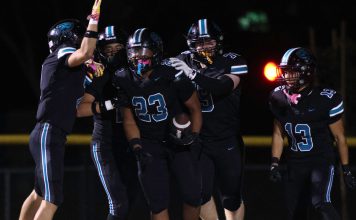GILROY
– City officials are hoping the third time’s a charm for its
library grant application. Gilroy officials learned Wednesday that
the state turned down the city’s grant application for $12.7
million in funds to build a new library for the second time.
”
It’s quite disappointing, and we’re not the only community in
this boat,
”
said Bill Headley, the city’s parks and facilities development
manager.
By LORI STUENKEL AND CAROL HOLZGRAFE
Staff Writers
GILROY – City officials are hoping the third time’s a charm for its library grant application. Gilroy officials learned Wednesday that the state turned down the city’s grant application for $12.7 million in funds to build a new library for the second time.
“It’s quite disappointing, and we’re not the only community in this boat,” said Bill Headley, the city’s parks and facilities development manager.
California voters approved $350 million in November 2000 to renovate and build libraries throughout the state, to be distributed in three rounds. Because there is an estimated $2 billion in library needs throughout California, competition has been fierce.
On Tuesday, the state board gave the go-ahead to 16 applications totaling $108,157,632.
Still remaining in the pot is $91.8 million. Applications for this third round are due Jan. 16.
Even as the list of applicants has shrunk after two rounds of awards, more communities have joined the competition.
“That’s the sad part of the story,” said Sally Leete, adult program librarian at Gilroy Public Library. “There are extremely crowded libraries throughout the state of California, so the need for new library buildings currently exceeds the amount of funding that is available.”
Just as it did after being denied in the first round of awards, the city will re-work its application and try again.
“We will definitely review the evaluation and scoring used in our second round cycle,” Headley said.
Gilroy – and Morgan Hill – both submitted grant applicants hoping their plans would get the nod from a committee headed by state Librarian Kevin Starr. Both cities’ hopes were dashed.
“We’ve received very good evaluations on our grant applications,” Leete said, “and normally you’d expect to get funding … but there are libraries even in more desperate straights than we are.”
Proposals were scored on the basis of need, technology plans, site and age and condition of any existing building, with the additional flavor of geographical distribution. Community and school district involvement with the library and commitment to a new library are also taken into consideration.
The city scored better on its second grant application than its first, while receiving an overall score of “very good” for the second time, Headley said.
Thirteen applications ranked in the top “outstanding” category received grants as did three “very good” applications.
The city will likely meet with one or more of the evaluators to figure out how best to improve its application. Some issues, such as the condition of the building, are scored but obviously cannot be changed to raise the application’s overall score. On the age and condition of the existing library, Gilroy received a score of “very good” because its facility is rated in poor condition. A city without an existing library would receive a score of “outstanding” in the same category.
The city will improve what it can, such as raising its “very good” score on its technology service plan.
“Whether that will boost us to the top of the list will remain to be seen,” Headley said.
The city will also slightly raise the amount of money requested to account for price increases in construction costs.
Northern California cities whose grant applications were accepted include Castroville, $3,158,614; Fairfield Cordelia, $4,100,385; Pickleweed Library (San Rafael), $1,288,893; Redwood City, $10,103,707. The San Diego Public Library was the big money winner with $20,000,000.
Headley said the amount that cities request is not a factor when applications are considered.
“I think it has a minimal effect because they’re using … quite a detailed, objective process to award the points and the dollar value only comes into play when they’re at the end of the whole list, and they’re not sure what they’re going to do with the last dollars,” Headley said.
The current Gilroy library, built in 1975, occupies an overcrowded 13,000-square-foot space. The projected building would be 52,000 square feet, large enough to meet space needs per person through the next 20 to 30 years, Leete said.
The state’s third and final round of awards is currently the city’s last hope for funding the project, which will cost a total of $19 million.
“You don’t want to hear the crying out of this building, because right now we don’t have a plan B,” Headley said. “We don’t have really any options … That will be the end of the Prop. 14 bond money.”
The city will pay for about 35 percent of the project from developer’s fees and county funds, but has no plans for paying for the rest of the project if its application is denied a third time.
“If we don’t get around (the third) cycle, then I think it’s back to the city leadership and the library,” Headley said.
Winners will likely be announced sometime next summer, Headley said. If Gilroy should win, construction might begin by spring 2005, after construction plans are finalized.














